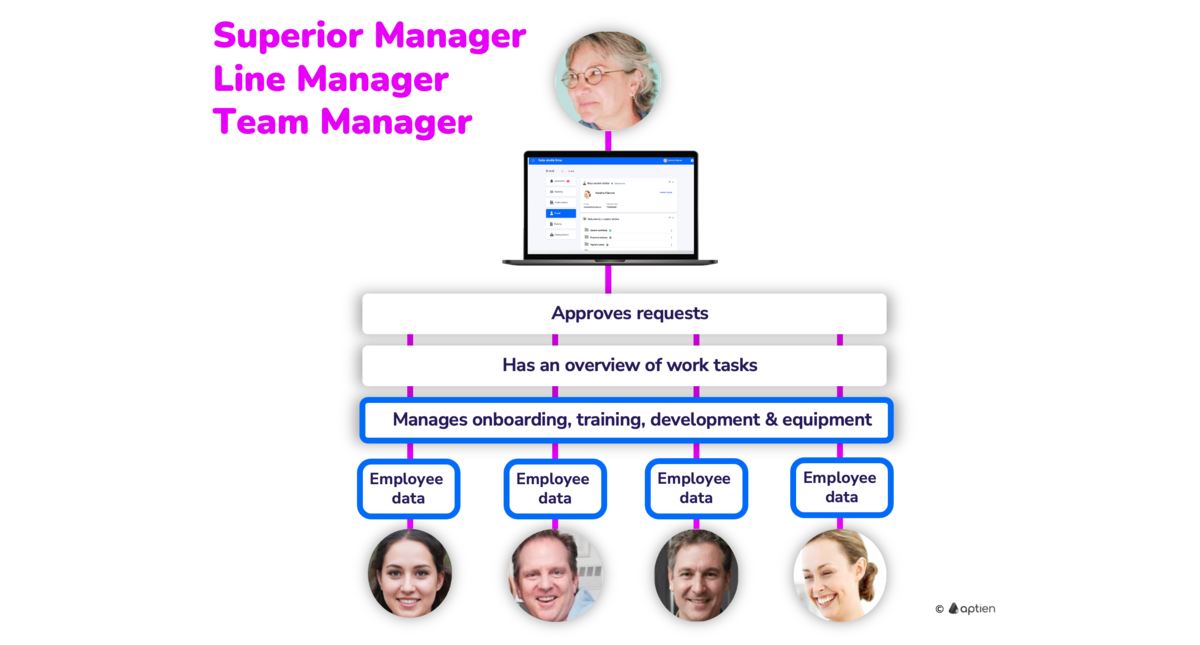Definition of Manager Self-Service
Team Manager Self-Service empowers line managers and team leaders to efficiently oversee their subordinates, manage tasks, handle requests, and support development. It provides comprehensive information about team members, from their onboarding and adaptation to ongoing development and eventual departures.
The benefits of self-service extend to both managers and personnel. For managers, it becomes an integral part of their workflow, offering the following advantages:
- Enhanced Communication: Manager Self-service streamlines communication between managers and team members, fostering more effective collaboration among subordinate workers.
- Reduced HR Inquiries: By enabling managers to access relevant information directly, self-service minimizes the need for frequent inquiries to the HR department.
- Remote Communication Solutions: Self-service bridges the gap between managers and remote employees, facilitating seamless communication regardless of physical location.
- Automation of Routine Tasks: Managers can automate manual, repetitive tasks through self-service, freeing up time for more strategic responsibilities.
List of Manager Self-Service Features
- Online Access: Managers can access subordinate employees’ personal information and documents conveniently.
- Request Visibility: Managers have visibility into all requests made by their subordinates.
- Work History: Managers can review the work history of their team members.
- Personal Updates: Stay informed about current personal information updates and significant life events through the personal folder.
- Approval Workflow: Managers can approve work-related requests, including leave and vacation requests.
- Employee Development: Manage and support the personal development of employees.
- Resource Overview: Get an overview of issued work aids, equipment, and tools.
Benefits of Manager Self-Service
- Efficient Communication: Self-service systems significantly reduce the need for sending and replying to emails by 90%. Managers can access information directly, streamlining communication and saving time.
- Time Savings for HR Administrators: Employee self-service systems save time for HR administrators. They no longer need to handle routine requests individually, freeing them up for more strategic tasks.
- Effortless Document Collection: These systems enable the collection of input documents with zero effort. Managers can access necessary files and data seamlessly.
- Simplified Employee Information Updates: Self-service tools make it easy to update employee information without HR intervention or emailing. Managers can maintain accurate records effortlessly.
- Reduced Labor on Repetitive Tasks: By automating routine personnel tasks, self-service systems reduce labor. Managers can focus on more critical responsibilities.
- Capacity for Strategic Work: Self-service frees up valuable capacities of HR professionals. They can dedicate their time to strategic planning and decision-making.
- Streamlined Work Processes: Self-service streamlines work processes between employees and managers, enhancing efficiency and collaboration.
- Standardized Processes: These systems promote standardization of processes and uniform policy enforcement, ensuring consistency across the organization.
- Digital Accessibility: Self-service tools enable easy digital access to all necessary people, processes, information, and documents.
